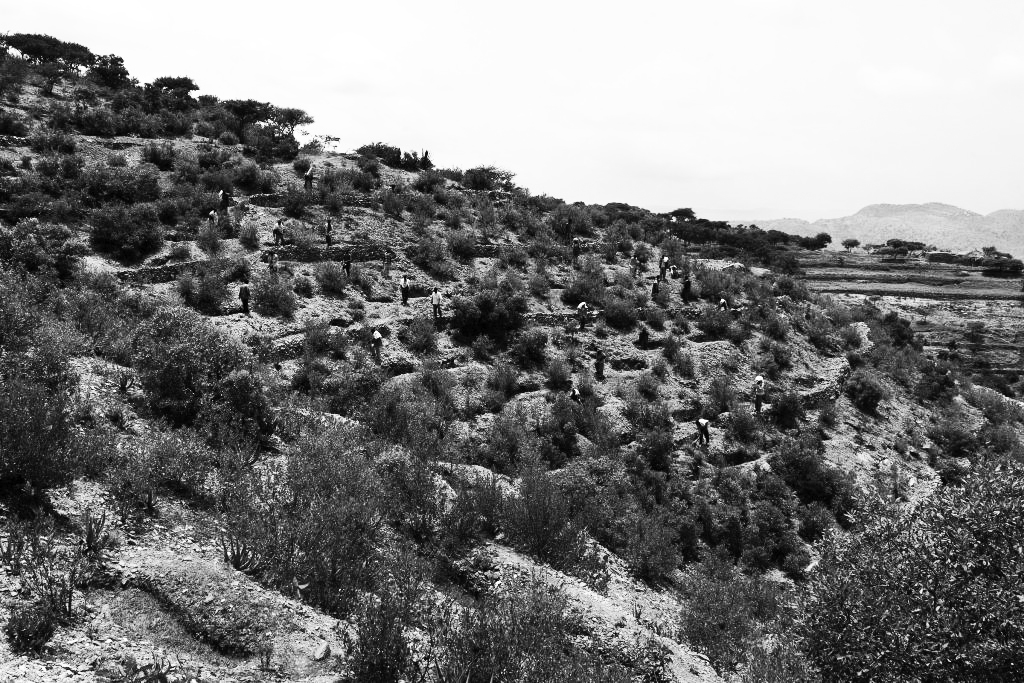
In the modern history of Ethiopia the grievance entrenched in land holding system had resulted in multifaceted scenarios, which posed political upheavals and the immediate downfall of Emperor Haile Selassie.
In the 1960s, the university students’ famous slogan “Land to the tiller” was one of the rallying points raised to oppose the status quo. After the regime’s demise the two successive regimes ie the Derg and EPRDF tried their level best to resolve the problems pertaining to the land tenure system but in vain.
According to the renowned land researcher Desalign Rahmato, the Derg regime introduced the first land proclamation to improve the land tenure system. Expecting positive outcomes from the proclamation, supportive demonstrations were staged in Addis Ababa and in other major cities. Nevertheless, after a while, the public expectation began to wane. The proclamation simply entitled farmers to only have use rights of their land which pose tenure insecurity.
Taking this in to account, recently, Forum for Social Studies ,a local none governmental organization which comprise think tank groups with profound knowledge, had organized six successive public debates that focused on the topics of land ,land usage and food security in Ethiopia.
According to the FSS press release, for a decade, Ethiopia had exhibited a double digit economic growth achieving tremendous progress in expanding various infrastructures .However, the nation has remained one of the most pauperized country in the world.
The press release also indicated that, though efforts are underway, the venture in expanding the manufacturing and service sectors. Reducing poverty to the record level is far from achieved still unachieved.
Agriculture plays a dominant role in the nation’s economic endeavors and contributes 84 percent to the export earnings and creates job opportunities to the 80 percent of the labor force .But, it is confounded by environmental, technological and structural problems.
The absence of land tenure policy which accommodates small scale farmers’ interest, the absence of viable land usage policy which considers the protection of natural resources and lack of sufficient extension service to farmers hampers the growth of the sub sectors. The problems are structural by their nature.
While presenting the Study paper Desalegn said that, the problems that arise from the tenure system are exacerbated by the measures that have been taken to address the problems.
He cited Derg’s land policy in this regard. Though the measure was radical one the arbitrary land redistributions underplayed the whole efforts, and the allocation of land irrespective of the rapid population growth further aggravated the crises and left farmers land less. The restriction of using hired labor for farming also made rural unemployment rampant.
The Derg land reform was characterized by abolishing private land ownership for the sake of public interest, making land inaccessible to small scale farmers, banning access to land through purchasing, leasing, mortgaging or inheritance. It stipulated land tillage by farmers rather than by hired labor. The EPRDF regime which came to power after Derg, sustained the tenure system with very little improvement.
As to Desalegn ,the only difference of the EPRDF policy to that of the Derg was its permission for offspring to inherit land from their parents, allowing letting farm land for rent for short period of time and utilizing hired labor.
The federal system introduced by the EPRDF regime delegated and allowed land administrative power to the state governments .Land laws introduced by these governments were in discordance and the limitation of lawyers with regard to legal knowledge made the matter worse from 1990 to 1997 EC.
Nevertheless, the introduction of the laws regarding land registration and certification in 1997 by the Federal government can be taken as a decisive measure.
The land registration and land holding document process was accomplished in a short period of time due to the high participation of farmers. However, it had its own shortcomings.
Land registration enables to avoid land dispute and conflict among farmers due to territorial claim.
However, farmers committee engaged in land certification did not utilize technology helpful to measure land sizes. In most places it used ropes and sticks. Eye, arms and steps estimation, usually inaccurate, were applied.
Because of the absence of permanent demarcated boarders they used portable boarders such as stones, trees and shrubs for demarcation. Though the intention of border demarcation was to parry conflict among neighboring farmer. it was ineffective in bringing the expected result. Rather conflicts exacerbated.
Currently, the second border demarcating process is taking place through utilizing the GPS technology and each plot land has been issued certificates. Previously, the land holding registration was implemented through leisure but now it is digitalized. This has become of help to reduce inconsistency and conflict.
Land certificate is given both to husband and wife jointly or separately. It is proved
that the certification has empowered and incentivized them to take care of the land, conserve soil and raise productivity
As to Desalegn, currently, the tenure system has faced internal and external challenges. Population pressure fragmentation and scarcity of land can be categorized as internal one while the expansion of industrial agriculture and its pressure on peasant farms can be categorized as an external one.
During the discussion questions were raised by participants. The Ethiopian Citizens Social Justice policy Research Director Amha Dagnew asked that as the land issue is a burning one how solution could be forwarded.
Responding Desalegn said that he fear to comment regarding the land issues. He further said that for the last 15 years land dbeen regarded not only as a resource for production but also interlinked with nationality and religious identity. This has further complicated the matter. Hence, forwarding a ready- made type of solution is impossible
Many agree that land should have both use and transaction value but currently farmers are entitled only to use rights. As a result, in rural parts of the country, land has no transaction value which in turn inhibits farmers’ access to loan from financial institutions. People with ideas and money are also unable to engage in farming because of the inaccessibility of land. Such type of tenure system is exactly similar to a socialist system.
Contrary to this, due to the government’s monopoly-like land holding, land is available to the market at a very expensive price in urban centers. The government could favor its supporters and greets its opponents with a cold shoulder. And many argue that such practice favors only the privileged ones to get access to land, while the majority poor will be marginalized.
Often, during election periods in the course of the last 27 years, the land issues has been provoking heated debates among political parties. But to date viable solutions, which bring consensus among various interest groups, is not forwarded. The issue is expected to be controversial in the coming election too.
The Ethiopian Herald Sunday Edition February 23/2020
BY ABEBE WOLDE GIORGIS





